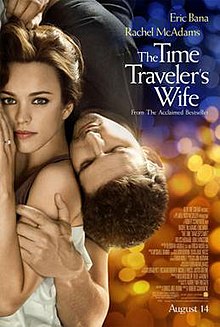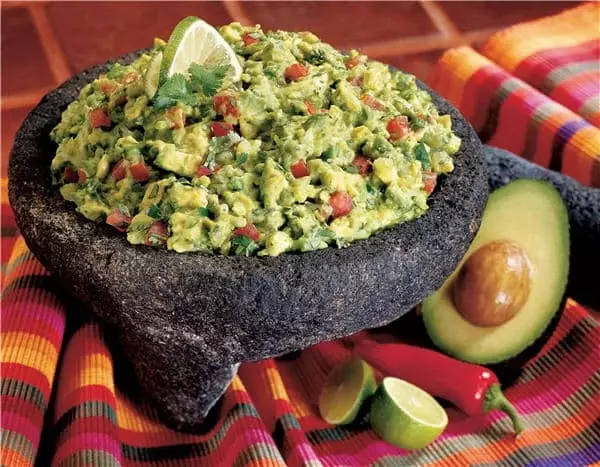I just saw an ad for Barnes and Noble's Nook. It's an e-reader, named a bucolic epithet to put it in direct competition with the Kindle. If you were to use both at once, you would find your favorite reading perch is, in fact, a Thomas Kinkade painting, so homey would be your e-usage.
I knew this thing existed and haven't given it too much thought. I own books I haven't read, others I'll reread and others still I just like having around, and they all have a feature the new Nook proudly totes: they are all touch-controlled.
I was surprised to find the Nook didn't already have this function, as I supposed it was the obvious thing to do. The Nintendo DS had a touch screen years before the Nook, Kindle or Hearth (or whatever the next one will be called) existed. The technology was there, but a device created to ape the effect of holding a book didn't have a book's number one feature, one an old .45 record told me to do in my youth. That is, *ding dong* turn the page.
There are plenty of things to like about e-readers, enough that I would accept one as a gift, should the opportunity arise. As Neil Gaiman has pointed out, they make any book large type with the push of a button, they are often more portable than bound volumes (Perdido Street Station is a monster of a book) and you don't have to go to the pesky library to get another one. The last one may seem like my trademarked tongue in cheek humor, but you haven't met some of the Chicago librarians. Seriously, they're not even eccentric about being stuffy; they're just kind of mean.
My favorite thing about the e-reader, though, is what it will do to books themselves. Every e-book feels the same, its texture and tone that of your Warm Blanket or Tree Shade, but a book like The Yiddish Policeman's Union has a feel all its own, with distressed pages and fold out covers (even in paperback!). It's sort of like the introduction of the PSP's competition made the DS get off its duff. Similarly, the printers' monopoly on printing is at its end.
But for all the good points of an e-reader, they're one step-backedness seems to work against the people who make them. You're a large bookseller, with stores across the country, stores which you are staffing with people who you get to pay below what their English degrees deserve, but still you pay them. You're paying utilities, property taxes, kick backs to the mafia, all those niggling fees to exist, yet you decide to sound your own analog death knell by entering the digital sphere. With the advent of your Patch of Sunlight (wait, no, that's where cats relax, not where people read. Sorry.), you have effectively ended your support of books made out of trees.
I understand the desire to diversify, but I also think giving people a reason to not come into your store is questionable business. Seems to me, I come out with the Umbrella-Protected Beach Blanket or the Grassy Knoll, I start selling my stores like mad and let the artsy-fartsy people careen to their doom on their Gutenberg raft.
It's not that I don't think both platforms will survive, but Barnes and Noble, Borders and that half-aisle at Wal-Mart can't really spread themselves too thin and still compete with libraries and independent booksellers, especially when they're working against themselves. Seeing as how e-readers offer less of the book experience, maybe it's just time for the big boys to pack up and let people have their readin' the way they want it.
Now, if you'll excuse me, I'm going to flip through pages just because I can.
Showing posts with label book. Show all posts
Showing posts with label book. Show all posts
Wednesday, May 25, 2011
Friday, April 15, 2011
Accidental Produndity 2: Bookstore Closings
It was in some book about Neil Gaiman in which he said that it seemed bizarre to him that the ghost stories of Dickens should be in the LITERATURE section of a bookstore while the ghost stories of most contemporary authors (whose names I don't know) are consigned to the horror section. I might add that I find it bizarre that the willfully-ghosty Her Fearful Symmetry by Audrey Niffenegger made it to FICTION.

Her science fiction book's movie's poster

Her science fiction book's movie's poster
Michael Chabon has, as an author who has migrated from "naturalistic fiction"--stories about divorce, homosexuality, drug abuse, the death of a loved one... divorce--to a writer of "genre fiction" (which is a story about a detective or a 10th century mercenary or a comic book artist, etc. dealing with divorce, homosexuality...) said in his interview with the AV Club, "when these labels are used to prevent discussion, to prevent a work from being taken seriously, on its own terms as literature, because of how it came packaged, that's what bothers me."
That marketing is what bookstores use to tell you what you're reading. You like stories of people in love? Here's ROMANCE. Comic books? GRAPHIC NOVELS. Actual novels? FICTION. Never you mind that Pride and Prejudice is a romance, that Jimmy Corrigan, Smartest Boy on Earth has nothing to do with Superman, that Pulitzer Prize winners are regularly left out of FICTION. Each has its proper, arbitrary place.
Until the ship starts to sink.
Borders is, largely, going out of business. Small wonder, really. There are so many books in the world, I sometimes wonder whether we need to actually reprint so many. Seriously, people, check out a used book store.

You can find something in there you want.
That marketing is what bookstores use to tell you what you're reading. You like stories of people in love? Here's ROMANCE. Comic books? GRAPHIC NOVELS. Actual novels? FICTION. Never you mind that Pride and Prejudice is a romance, that Jimmy Corrigan, Smartest Boy on Earth has nothing to do with Superman, that Pulitzer Prize winners are regularly left out of FICTION. Each has its proper, arbitrary place.
Until the ship starts to sink.
Borders is, largely, going out of business. Small wonder, really. There are so many books in the world, I sometimes wonder whether we need to actually reprint so many. Seriously, people, check out a used book store.

You can find something in there you want.
I stopped by a closing Borders on the way home today and found the most bizarre thing: ASTROLOGY mingling with wedding planning guides, FICTION cavorting with ROMANCE, RELIGION and SCIENCE frolicking on the half-priced shelves (it was actually the shelves they were selling).
In In the Blink of an Eye, Walter Murch discusses how changing about one gene makes a human into a monkey; moving one scene of a film turns a comedy into a tragedy. Likewise, consider how unified knowledge is: Astrology is superstition, but how much hokum is in your average wedding?

Rice doesn't make this happen
In In the Blink of an Eye, Walter Murch discusses how changing about one gene makes a human into a monkey; moving one scene of a film turns a comedy into a tragedy. Likewise, consider how unified knowledge is: Astrology is superstition, but how much hokum is in your average wedding?

Rice doesn't make this happen
FICTION and ROMANCE? Harper Lee thought To Kill a Mockingbird was a simple love story. I purposed to my wife with a soap carving and some chewing gum in a knothole.
RELIGION and SCIENCE? Science is magic explained. Magic is science understood. Both go well with guacamole.

So does everything else.
RELIGION and SCIENCE? Science is magic explained. Magic is science understood. Both go well with guacamole.

So does everything else.
I think about how we've compartmentalized thought into a bento box of consciousness and realize Chabon was right: it's all about marketing. Capitalism determines what goes where, since it's all about consumption, and labels are the easy way to make something consumable; they are the sugary BBQ sauce of literature.
Make that a mental image. I already have 4 pics in this post.
Sure, the system is capitalist, but what if you were to step outside the system? What if you thought for yourself? Certainly, as Chabon points out, genre is workable. It's not bad to say a book is a fantasy story, but it's bad to say it's "only" a fantasy story. Capitalism reduces things to their most cursory parts, while true appreciation for art (a political stance in and of itself) uses genre as a way to free art.
The best way to do this is to read in a sense that doesn't vote with the dollar, but with the mind. Check out that used book store I mentioned earlier or even (hold on tight, I'm about to blow your mind) the library you've already paid to use! Reward people who want what we have and let the chain bookstores know we don't need to be told what to want.
If we do that, we will read better, think better and live better and maybe, someday, we can get those labels down to FICTION and NON-FICTION... and then start thinking about how gray those terms are.
The best way to do this is to read in a sense that doesn't vote with the dollar, but with the mind. Check out that used book store I mentioned earlier or even (hold on tight, I'm about to blow your mind) the library you've already paid to use! Reward people who want what we have and let the chain bookstores know we don't need to be told what to want.
If we do that, we will read better, think better and live better and maybe, someday, we can get those labels down to FICTION and NON-FICTION... and then start thinking about how gray those terms are.
Labels:
book,
capitalism,
chabon,
gaiman,
used
Subscribe to:
Posts (Atom)

